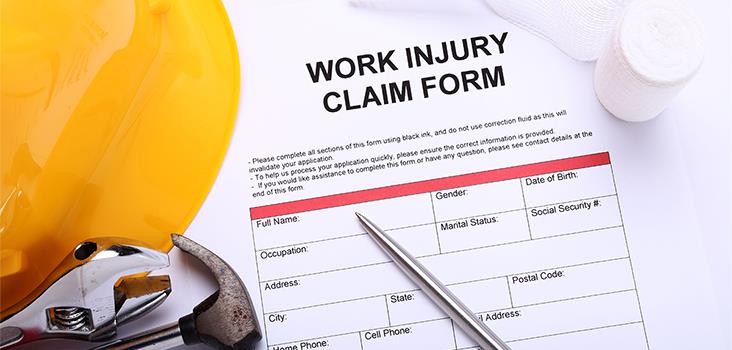
Workers' Compensation Fraud: What You Need to Know
Workers’ compensation fraud generally occurs when a person knowingly provides false information about an injury that may or may not have happened at the workplace to take advantage of the system for extra money and paid time off. The National Insurance Crime Bureau (NICB) states that workers’ compensation fraud costs the American workforce about $7.2 billion each year. However, if you’re armed with the proper knowledge, you can reduce the risk of workers’ compensation fraud in your workplace.
What Are the Different Types of Workers’ Compensation Fraud?
There are a few main types of workers’ compensation fraud. Knowing a little about each one may help you identify whether it’s taking place in your company.
The Exaggerated Claim: A worker who has legitimately been injured, but exaggerates the severity of their injury to accrue more money and paid leave.
The False Claim: Either the employee’s injury never took place or their accident was staged. A staged accident is when a worker intentionally injures themselves at work or creates a situation to fake an injury.
The Off-the-job Injury: This is when an employee is really injured, but the accident occurred offsite and they are trying to claim that the injury happened while at work.
Collecting Workers’ Compensation Benefits and Working: To receive benefits after an accident, a claimant could say they are unable to work, but then may work a second job to bring in double income.
Employer Fraud: Fraud can be committed by the employer if they underreport payroll or misclassify employees for a lower insurance premium. This also occurs if an employer intentionally fails to acquire proper workers’ compensation coverage.
The “Malingerer:” The Malingerer is someone who was truthfully injured at work, but tries to extend their time off by insisting they are still too injured to work – even when they are fully healed.
What Are Some Signs of Workers’ Compensation Fraud?
Being able to spot the signs of workers’ compensation fraud may save you from complications in the future. Here are a few of the main signs of workers’ compensation fraud to look out for:
- The injured employee is refusing professional treatment
- It took a while for the injured worker to report the accident
- There were no witnesses when the accident took place
- There is a history of workers’ compensation claims from the same worker
- The injury occurred right before a termination or end of contract
If you’ve seen two or more of these signs present themselves in your workplace, you may want to further investigate.
How to Prevent Workers’ Compensation Fraud
There are ways you can strengthen your defense against workers’ compensation fraud. Although it can be hard to tell the difference between someone who is truly in need of workers’ compensation and someone who is just trying to take advantage of the system, with proper prevention in place you will be better equipped to tell the difference between fraudulent cases and legitimate ones.
Educate Your Employees: Sometimes what seems like workers’ compensation fraud is really just someone who doesn’t understand they are breaking the law. Make sure your employees understand all the ways fraud can happen, and the severity of the repercussions if caught.
Instate a Zero Tolerance Fraud Policy: Once you educate your employees on workers’ compensation fraud, put a policy in place that makes it clear that attempting workers’ compensation fraud is unforgivable and a fire-able offense within your company.
Screen Your New Hires: You most likely already have a proper screening process in place for new hires. Now, consider this information and be on the lookout for red flags when examining a potential hire’s history.
Through education, attention to detail, and proper preparation, you can lessen the risk of workers’ compensation fraud happening in your workplace. Although it’s hard to guarantee that even after the proper policies and forewarning, an employee of yours won’t attempt to commit workers’ compensation fraud, you’ll have confidence in knowing that you’ll be better prepared if ever an issue arises.
*This document is an overview and does not constitute legal advice. Employers are encouraged to discuss questions and concerns regarding workers’ compensation fraud with legal counsel.



